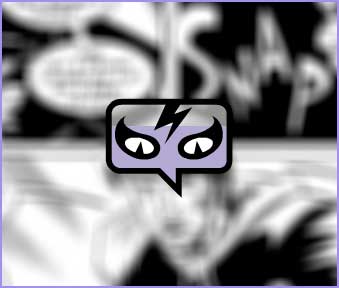 So a few years ago I did an interview which wound up on the Hellboy 3-Disk DVD. The interview was pretty good (although the “examples” they showed had nothing to do with what I was saying).
So a few years ago I did an interview which wound up on the Hellboy 3-Disk DVD. The interview was pretty good (although the “examples” they showed had nothing to do with what I was saying).
Anyway, it came out, some people bought it, and from its Amazon ranking, it still sells from time to time.
But…
Like all movies, it wound up on sharing/streaming sites. Now, when I egosurf, I see references to the piece all the time, and I know they’re all bootlegs because they’ve apparently been translated into other languages and then translated back.
Just a few of the names:
A Expeditiously Guide to Thought Comics with Scott McCloud
A Fleet Guide to Concept Comics with Scott McCloud
A Fast Guide to Belief Comics with Scott McCloud
A Hastily Guide to Conception Comics with Scott McCloud
A Lickety-split Guide to Conception Comics with Scott McCloud
A Like A Flash Guide to Notion Comics with Scott McCloud
A Mercurial Guide to Idea Comics with Scott McCloud
A Posthaste Guide to Opinion Comics with Scott McCloud
A Rapidly Guide to Idea Comics with Scott McCloud
A Snappy Guide to Plan Comics with Scott McCloud
A Speedily Guide to Idea Comics with Scott McCloud
A Swiftly Guide to Plan Comics with Scott McCloud
I’ve always held back from vilifying file-sharing like some of my peers who work in the “content” industry. I’m a boy scout myself—nearly all my songs and videos are straight from iTunes or equivalent sources—but I would rather live in a world that allows sharing and tries to build markets from willing sellers and willing buyers, than a world where the Net is so controlled that it can be effectively shut down.
Still, it’s sobering to see the scale of the phenomenon and how rarely these sessions pull up the actual name of the original segment:
A Quick Guide to Understanding Comics with Scott McCloud
 Not comics-related, but I found this article about the impending availability of more wireless spectrum kind of interesting, and I liked the little “Internet of Things” video IBM put together (found via Mark Essel). For a corporate promo, it does a decent job of visualizing legitimately interesting issues, without just shilling for a specific product.*
Not comics-related, but I found this article about the impending availability of more wireless spectrum kind of interesting, and I liked the little “Internet of Things” video IBM put together (found via Mark Essel). For a corporate promo, it does a decent job of visualizing legitimately interesting issues, without just shilling for a specific product.*
















 So a few years ago I did an interview which wound up on the
So a few years ago I did an interview which wound up on the 

